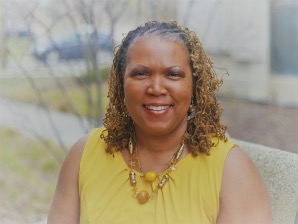
Teaching Through Façade
“I see you!” is a trending colloquialism. It is prevalent on social media and tv commercials. Think Google Pixel commercials featuring Druski, Jason Tatum, Giannis, and other NBA and WNBA stars. “ I see you” says you are doing the do, handling your business. “I see you” is different from pejorative side-eyeing, nosy eyeballing, or shade. “I see you” is an optical-verbal pat on the back. I see your skills, your talent, and your moves. I see your humanity.
I wonder, however, how do we see ourselves? Do we look in the mirror and offer the same affirmation? Or is our own internal self-talk lacking what we give to others? We will give a compliment while refusing to receive one. For some of us, there will always be something about ourselves we believe we can’t applaud. We have achieved, arrived, and accomplished, yet we are constantly looking over our shoulders waiting for “them” to “find us out.” Without question we have the title, desk, company computer, and business expense account. However, not a day goes by when you or I don’t hold our breath waiting for the ball to drop or the stuff to hit the fan. I see you. The ultimate question is how do we in the academy see ourselves?
Coined by Drs. Pauline Clance and Suzanne Imes in the 1970s, imposter syndrome is described as an “internal experience of intellectual phoniness in people who believe that they are not intelligent, capable, or creative despite high achievement.” It is the constant scrutiny, self-critique, position of doubt, posture of “I don’t belong,” and rewinding of being unsure and uncertain. Imposter syndrome evinces wherever a person feels they are not qualified notwithstanding credentials that testify otherwise.
Yes, there was a lack of cultural competency and attention to race, class, and gender in the initial studies. However, since then many psychologists and researchers of African American, Asian, Latinx, and LGBTQ life and background have noted that imposterism can be found across existential realities. There are many series of external and systemic factors that contribute to the sense of fraud and “fake person” experience: work drama, email mayhem, blind copy bullying, a low grade in college when you were valedictorian in high school, coercion to turn on the Zoom camera, or a slight off-color comment. These are some of microaggressions that lead to macro-agitation, and maybe to macro-medication. Imposter syndrome is especially evident when discussing first-generation college students, women of color, people who are the first or only in a position, transgender siblings, and anyone who must thrive in contexts that are predominately white, cisgender, and male.
A part of our duty as professors is to attend guild meetings. Such convening can be quite daunting for students who travel to present a paper for the first time or meet a “scholarly superstar” in person. Yet, I wonder how do we, as faculty, teach and sojourn with each other despite our own experiences of imposter syndrome? Our courses ought to help students see that their feelings of not being “good enough” do not rest solely on their shoulders. Classroom work should promote a pedagogy of decolonization which shuns imposter posturing and calls oppressive systems out for what they are.
The greatest harm of imposter syndrome is how it causes professors and students to suffer, and this leads society to suffer as well. Our giftedness does not illuminate a dark, dank world when we doubt ourselves and dare not show up fully. “I see you,” says I see you—all of you.
Leave a Reply